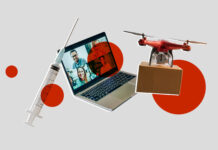One of the most obvious ways to understand whether or not technology is applied meaningfully in a hotel is to reflect on something that is heard with some frequency in any hotel management forum: technology helps improve business productivity .
This improvement in productivity is generated in three ways: reducing the times in the execution of processes, eliminating or totally or partially replacing tasks within those processes or incorporating new functionalities that add value to the existing process.
In this way, productivity works as the relationship between value generated and resources used and, although it is obvious, the objective is to maximize the value of the service with the optimal use of resources .
If we think about how technology has contributed to this optimization and improvement in productivity, we see how in most cases the technologies that have been consolidated as part of a hotel’s operations have been those aimed at reducing times in the execution of chores. Thus, incipient technologies, as in vogue as automation, artificial intelligence, big data or robotics, become those that, directly, replace complete processes, reformulate existing processes and disruptly rethink the management of operations and service in a hotel.
On technology as an improvement in business productivity
We have to distinguish between the technologies and resources that are in the numerator of our equation and those that are in the denominator. When we talk about productivity:
The Generated Value concept focuses here exclusively on the final value of the service, on the customer. We could also accommodate the value generated by the automation and substitution of manual processes carried out by human resources, but this would be an argument for another writing.
Among the technologies that are framed in the optimization of resources and that improve the execution times of tasks, there are some that deserve special attention due to their gradual incorporation into the sector: document readers at the reception or electronic commands in restaurants allow to streamline a process in which despite continuing to use human resources, data collection is streamlined and automated. For the employee and for the client, the value translates into the optimization of times.
Another issue would be the online check-in process or, in another environment, biometric signature systems or cash machines that replace or advance tasks in the production process, in the purest style of Lean Management methodologies .
Regarding technologies that dispense with or radically change a process , we could think about the possibilities of artificial intelligence in activities such as revenue management, commissary purchases or housekeeping tasks assignment .
What will you do when technology allows you to optimize the use of human resources to the maximum
In those same forums that I was referring to at the beginning, I often hear that technology in operations helps save time and be more efficient in managing processes. Even the most daring reflections affirm that they will replace human work and that they will detract from the value of contact between people.
Indeed, this approach has a place within a way of understanding the business. It is an approach in which one thinks of the substitution or elimination of tasks as a productivity objective, the focus is on the denominator of the equation, when the reality is that there is no greater increase in productivity than creating new processes and tasks that contribute value within a service, focus on the numerator.
We can think of replacing back office tasks with other back office tasks and we will have the best possible back management, but if the approach were to reduce by automating the tasks that do not add value and increase the tasks that add value , we would enter a new one dimension, a new way of formulating hotel management. It is not only short term, it is also medium and long term.
A new way of understanding productivity
Not long ago, I was reading a report that, despite being a few years old, I find it interesting to mention. In it, they talked about the huge gap that existed between the company and the client when the contribution and perception of value was measured. While 80% of the companies surveyed considered that they added special value to their customers’ experience, only 8% of the customers confirmed that they received this differential value. It seems that in the field of generating value, and therefore improving productivity, there is still a long way to go ( Report ).
Right in that field, technology can produce savings and increase productivity. But these indicators are the result of day-to-day management, where many other factors intervene. It is not the effect of a revolutionary technological change.
In general, technology in business has a far greater transformative effect than the short-term effect on productivity. This effect creates an opportunity to evolve and not remain stagnant, to grow the business, generate new activities, improve products and services or customer service.
The correct approach to address the implementation of technology in the company is to analyze the impact on business models , on how they must be transformed to address new growth opportunities, on how to differentiate themselves from the competition, on competing in new market niches, on redesign business processes .
The gain in productivity is more an effect of this transformation than an end in itself.
Without a doubt, we are facing a new and exciting opportunity.







